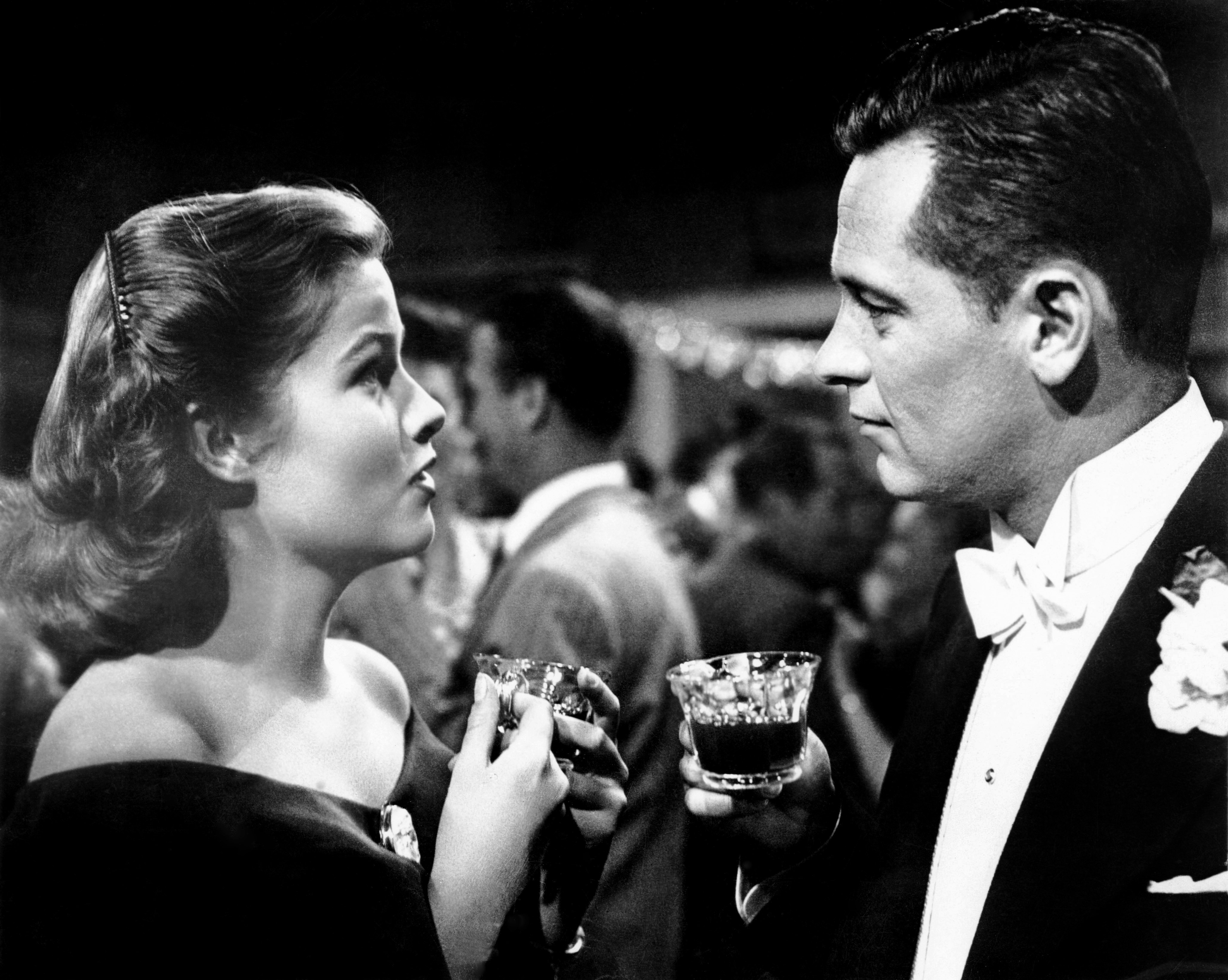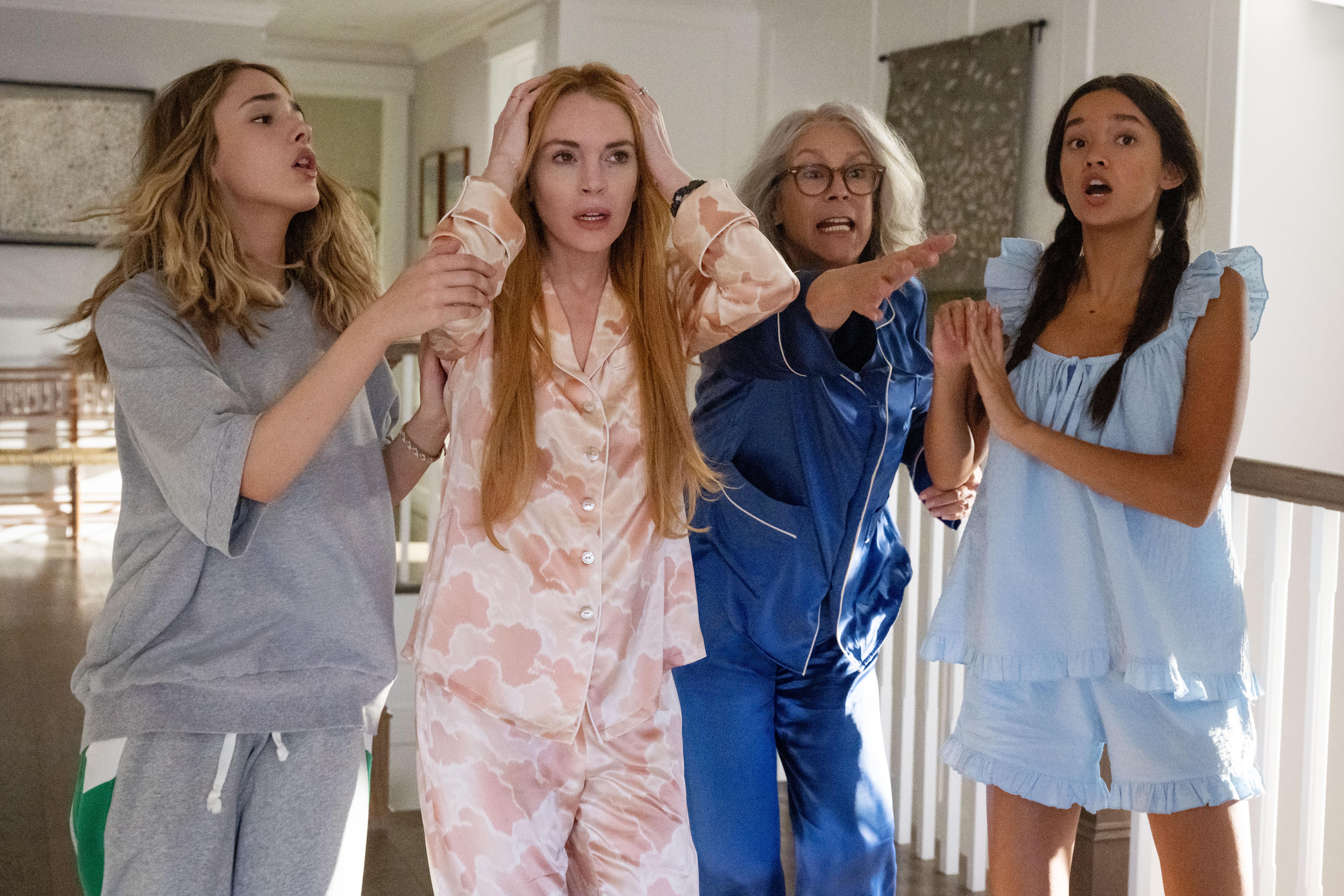The complete filmography of late director Terence Davies will be screened for the first time in the United States since Davies’ death in 2023. IndieWire can announce that the Museum of the Moving Image will present a retrospective series titled “Terence Davies: Time Present and Time Past,” from September 12 to 21. The screening series was programmed with permission from the Terence Davies Estate. Davies died at age 77.
“Terence Davies: Time Present and Time Past” will includes late English filmmaker Davies’ nine features, many of which are in rare film prints, as well as his trilogy of early short films and other rarely screened shorts.
Cynthia Nixon, who portrayed Emily Dickinson in Davies’ “A Quiet Passion,” will be in attendance for the September 18 screening. The opening night reception will also be celebrating the reissue of Davies’ 1984 novel “Hallelujah Now,” published by Film Desk Books. Highlights additionally range from “The House of Mirth,” “The Deep Blue Sea,” and “Benediction” screenings, as well as the autobiographical “Distant Voices, Still Lives” and “The Long Day Closes.”
“When Terence Davies passed away in the fall of 2023, the world lost one of its greatest, most uncompromising cinematic artists,” MoMI Senior Curator of Film Michael Koresky, who also wrote the 2014 book “Terence Davies” for University of Illinois Press, said. “Davies all but invented his own film language, using sound and image to radically and meaningfully plumb the depths of human desire and alienation, as well as the joys of family, of poetry, of music, and, of course, movies. We invite everyone to join us in celebrating the life and career of Davies with this complete retrospective to see his films as they were intended, on the big screen and with an audience.”
Davies previously told IndieWire that his 2022 feature “Benediction” might be his best film. “I do think ‘Benediction’ is the best thing I’ve done because of the commitment from everyone,” Davies said. “It ceases to be my film; it becomes ours. Once they’re finished, they’re no longer part of me. I never watch them again because you see them so often in the edit. If I want to think of a sequence, I can just think of it, because I’ve seen it so often. It becomes no longer part of you, in an odd sort of way.”
Check out the full program for “Terence Davies: Time Present and Time Past,” with language provided by MoMI, below.
“The Long Day Closes“
Followed by an opening reception celebrating the reissue of Terence Davies’s novel “Hallelujah Now”
Friday, September 12, 7:00 p.m.
Dir. Terence Davies. 1992, 85 mins. U.K. 35mm. With Leigh McCormack, Marjorie Yates, Anthony Watson, Nicholas Lamont. A portrait of the budding artist as a young boy, told completely from inside the child’s mind, “The Long Day Closes” is Davies’s exquisitely beautiful work of autobiographical fantasia. Davies described this radiant finale to his cycle of autobiographical childhood films as “the story of a paradise that’s already being lost and will only survive as a memory.” Suffused with enchantment and melancholy, “The Long Day Closes” takes the perspective of quiet, lonely eleven-year-old Bud, who, after the death of his brutal father, enjoys long summer days with his family and countless trips to the cinema. Davies jumps in and out of time, summoning memories and dreams in this singular filmic tapestry.
“The Terence Davies Trilogy“
Saturday, September 13, 1:30 p.m.
Dir. Terence Davies. 1976/1980/1983, 96 mins. U.K. 35mm. With Wilfrid Brambell, Terry O’Sullivan, Phillip Mawdsely. Terence Davies’s first three shorts are among the most accomplished debuts in film history, profoundly personal in theme and with a preternatural grasp of cinematic grammar. Consisting of “Children” (1976), “Madonna and Child” (1980), and “Death and Transfiguration” (1973), the films together form nothing less than the complete scope of a man’s earthly existence, set in the Liverpool of Davies’s youth, spanning school days to the nursing home, in stark black-and-white. Bravely interrogating the psychological effects of growing up (and growing old) as a gay man in a homophobic society, Davies’s trilogy imagines, with richness and occasional horror, a life lived in the shadows of disillusionment and alienation, while laying the aesthetic and emotional groundwork for an unparalleled career in cinema. Preceded by Home! Home! (2022, 16 mins.)
“Distant Voices, Still Lives“
Saturday, September 13, 4:30 p.m.
Dir. Terence Davies. 1988, 84 mins. U.K. 35mm. With Freda Dowie, Pete Postlethwaite, Angela Walsh, Dean Williams, Lorraine Ashbourne. Davies broke through on the international cinema scene after his debut feature stunned audiences at the 1988 Cannes Film Festival. Bifurcated into two sections, filmed two years apart, the film illustrates with abstraction, beauty, and occasional horror Davies’s memories of his family in 1950s Liverpool, both before and after the death of his psychotically abusive patriarch (an unforgettable Postlethwaite). Rather than narrate the story of his life in any straightforward manner, Davies moves in and out of time, often using popular songs of the day more than conventional dialogue to tell the story of three siblings whose traumas have left them frozen in time. A film of pure feeling that simultaneously keeps the viewer at an analytical remove, this miracle of a movie contains more haunting images in its relatively short run time than most movies twice its length.
“Of Time and the City“
Sunday, September 14, 1:00 p.m.
Dir. Terence Davies. 2008, 74 mins. DCP. Davies’s first film after an eight-year hiatus following “The House of Mirth” was his sole feature documentary, an archival-rich yet typically personal rumination on place and time. Autobiographical elements are fused with evocative, inescapably haunting images (still and moving) of Liverpool as it changed and mutated over Davies’s life. A typically eclectic soundtrack uses The Spinners, The Hollies, Peggy Lee, and John Tavener to build unexpected connections between images filmed decades apart, while Davies’s recitations from T. S. Eliot’s “Four Quartets” provides a poignant thread throughout.
“The Neon Bible”
Sunday, September 14, 3:00 p.m.
Dir. Terence Davies. 1995, 91 mins. U.S. 16mm. With Gena Rowlands, Jacob Tierney, Diana Scarwod, Denis Leary. Based on John Kennedy Toole’s celebrated Depression-era novel, The Neon Bible is Davies’s first American film, yet still fully of a piece with his nostalgia-suffused filmography. David is a young man growing up in a small Southern Bible Belt town in the 1940s. When his aunt Mae (Rowlands) a former club singer, comes to stay in the threadbare home he shares with his parents, she soon becomes his sole companion. This vibrant woman, with her theatrical past, bestows a previously unknown glamour and excitement to David’s world. The charismatic Gena Rowlands brings a perfectly calibrated star quality to Davies’s heartfelt film, coloring a young man’s everyday struggles with bright brushstrokes of hope and joy.
“Benediction“
Sunday, September 14, 5:30 p.m.
Dir. Terence Davies. 2021, 137 mins. U.K. DCP. With Jack Lowden, Peter Capaldi, Simon Russell Beale, Jeremy Irvine, Kate Phillips, Gemma Jones, Ben Daniels. In this aching, unorthodox historical drama, Davies tells the story of the pacifist poet and veteran Siegfried Sassoon, whose experiences fighting in the First World War forever transformed him. Played exquisitely by Lowden and Capaldi in his younger and older incarnations, Sassoon functions as a veiled surrogate for Davies himself, a figure of rage, torment, and immense wit whose life and art come to represent so much about the social realities of twentieth-century British gay life. “Benediction” is an emotionally overwhelming requiem that unites Davies’s singular talents for both Noël Coward-esque drawing-room repartee and a deeper, poetic depiction of trauma, shame, and the unending hope for salvation. Preceded by: “But Why?” (2021, 2 mins.)
“A Quiet Passion“
With Cynthia Nixon in person
Thursday, September 18, 7:00 p.m.
Dir. Terence Davies. 2017, 126 mins. U.S./U.K. DCP. With Cynthia Nixon, Jennifer Ehle, Keith Carradine. In Davies’s incandescent and haunting masterwork, named the best movie of 2017 by Reverse Shot, Cynthia Nixon delivers a triumphant performance as Emily Dickinson. Nixon embodies the piercing wit, intellectual independence, and personal pathos of the poet, whose genius only came to be recognized after her death. Davies evokes Dickinson’s deep attachment to her close-knit family along with the manners, mores, and spiritual convictions of her time that she struggled with and transcended in her poetry. According to Richard Brody in The New Yorker,” A Quiet Passion will take its place as one of his finest creations, as one of the great movies of the time.” Preceded by: “Passing Time” (2023, 3 mins.)
“The House of Mirth”
Friday, September 19, 6:30 p.m.
Dir. Terence Davies. 2000, 140 mins. U.S./U.K. 35mm. With Gillian Anderson, Eric Stoltz, Dan Aykroyd, Eleanor Bron, Anthony LaPaglia, Laura Linney. Davies’s magnificent, faithful adaptation of Edith Wharton’s 1905 novel is a sumptuous triumph. Its beating, battered heart belongs to Anderson, who miraculously evokes Wharton’s tragic heroine Lily Bart, a social butterfly whose position in turn-of-the-century upper-class New York City proves precarious after her financial situations take a turn for the worse—and she refuses to compromise her virtue or her romantic idealism. Davies’s adeptness at verbal wit and aching melancholy are on grand display throughout The House of Mirth, one of his greatest films. Anderson’s performance—a study in precisely maintained appearances that gradually crumble—is one of the cinema’s great embodiments of the ironic toll human virtue takes on the body and the soul.
“The Deep Blue Sea“
Saturday, September 20, 6:30 p.m.
Dir. Terence Davies. 2011, 98 mins. U.K. 35mm. With Rachel Weisz, Tom Hiddleston, Simon Russell Beale. Named the best movie of 2012 by Reverse Shot, Davies’s lush, meticulous, and deeply moving adaptation of a Terence Rattigan play stars Rachel Weisz as Hester Collyer, a woman who abandons her passionless marriage to a wealthy barrister (Beale), entering a torrid affair with a troubled former Royal Air Force pilot (Hiddleston), the consequences of which plunge her life into ruin. Davies’s collaboration with cinematographer Florian Hoffmeister infuses post-WWII London with a twilight nostalgic reverie, and, in a performance that earned the Best Actress award from the New York Film Critics Circle, Weisz brings to the character of Hester an unmatched luminosity, magnetism, and emotional rawness.
“Sunset Song“
Sunday, September 21, 4:00 p.m.
Dir. Terence Davies. 2015, 135 mins. U.K. DCP. With Agyness Deyn, Peter Mullan, Kevin Guthrie. An adaptation of Lewis Grassic Gibbon’s classic 1932 Scottish novel, Sunset Song is at once a quintessentially Davies meditation on family and the past, and his most pictorially ravishing work. The Guthrie family cowers in obedient fear of its brooding patriarch (Peter Mullan). His daughter Chris (Agyness Deyn), a beautiful and intelligent young woman impatient with the coarseness of her village, is stirred by the arrival of handsome young Ewan Tavendale (Kevin Guthrie). He brings happiness into her life, only for it to be disrupted by World War I. Sunset Song is an unforgettable epic of resilience, with one exquisitely etched sequence after another.



